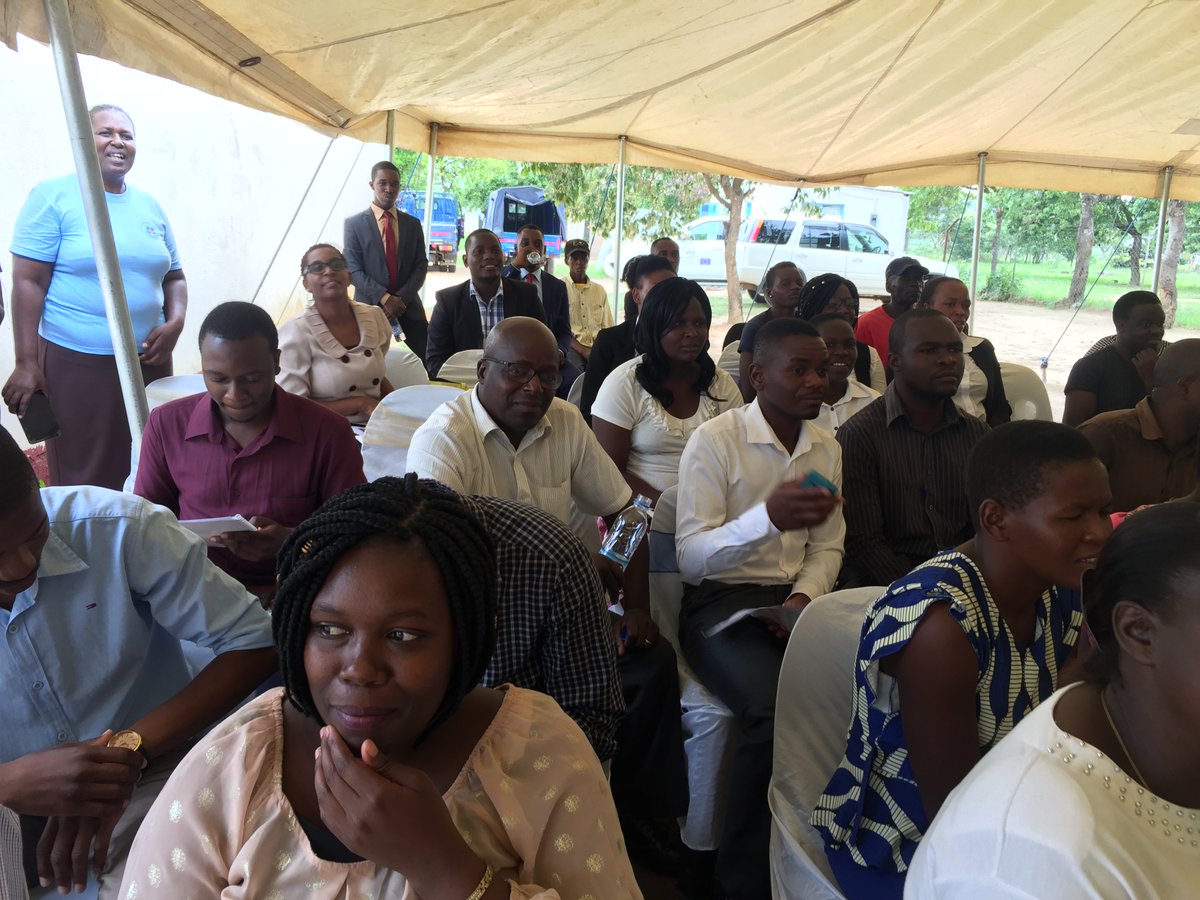The European Union has officially launched four new projects today that promote human rights, access to justice and citizen participation in policy dialogue for development in the key areas of health, governance and agriculture.
The European Union (EU) provides a total of EUR 5159746 (currently approx. USD 5,875 million) form the 11th European Development Fund for the four projects that will be implemented by international and local civil society organisations (CSO) within 30 to 36 months in different regions of the country.
Speaking at the official launch in Murehwa, Ambassador Timo Olkkonen, Head of the EU Delegation to Zimbabwe, said: “EU cooperation in Zimbabwe is premised on support to the full implementation of the Constitution. The projects we celebrate today are firmly anchored in the framework of the Zimbabwean Constitution, which promotes the principles of equality and participation and were selected according to the priorities identified in the EU roadmap for engagement with civil society, which was developed after wide consultations with civil society organisations countrywide, in order to improve the impact, predictability and coherence of EU support of CSOs.”
The four projects are as follows:
PLAN International, together with Justice for Children Trust and Women and Law in Southern Africa Research and education trust implements a 36-months project that aims at improving civil society’s participation in advocacy on children’s, and particularly girls’ rights by strengthening civil society’s networks in Masvingo, Matabeleland North and Bulawayo (EUR 1,8 million).
The Legal Resources Foundation (LRF) implements a 30-month project together with Zimbabwe Lawyers for Human Rights, Women in Law in Southern Africa, Justice for Children Trust and the Zimbabwe Women’s Lawyers Association that seeks to strengthen access to justice for marginalised and vulnerable groups such as women and children, and empower them to better assert their rights (approx. EUR 1,497 million).
The National Association of Non-Governmental Organisations (NANGO) works with Southern African Parliamentary Support Trust (SAPST), Zimbabwe Community Health Intervention on Research Trust, Zimbabwe Aids Network and the Sam Moyo African Institute for Agrarian Studies on a 36-months project that seeks to strengthen CSO’s role in public accountability by establishing a civil-society driven monitoring and evaluation system for the implementation of the National Indicative Programme, NIP (EUR 1,08 million). The NIP is the framework for cooperation between the EU and the Government of Zimbabwe and outlines health, agriculture-based economic development, and governance and institution building as key areas.
The Voluntary Services Organization (VSO) collaborates with the Research and Advocacy Unit (RAU) on a 36-months project that aims at improving the capacity of CSO that provide social support to vulnerable people in detention (approx. EUR 780000).
The European Union has a long standing partnership with civil society in Zimbabwe. Under the National Indicative Programme (NIP) for 2014 to 2020, the EU provides EUR 6 million to support Civil Society Organisations, specifically to enhance the role of civil society, including those organisations addressing gender equality, and the rights of marginalised groups, in the promotion of transparency, good governance and accountability, including internal accountability, enabling them to meaningfully participate in policy dialogue. Three of the projects launched today benefitted from this NIP budget, the fourth, LRF, is funded under the “11th EDF Support to Rule of Law and Access to Justice for all” programme signed by the Zimbabwean Government and EU in 2016.






